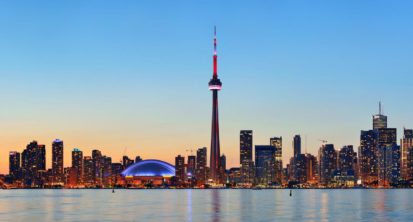Guatemala
New police clearance requirements
The General Directorate of Immigration announced that Police Clearance Certificates (PCC) are now required for permanent residence permit and temporary residence permit renewal applications. Police clearance applications are required for the past five years from the country of origin, each country of legal residence and Guatemala. These certificates must be legalized and apostilled, with the exception of Guatemala.
If the initial visa process was completed within the last 12 months and any of the above police clearances were provided at that time, they do not need to be provided again.
Key considerations
Employers and their employees should gather these documents as soon as possible as processes can be time consuming. The new requirement for PCC’s can increase costs and delays in applications.
This summary was prepared using information obtained from the Guatemala Migration Authorities.
Disclaimer: The above information is provided for general information purposes only and should not be construed as legal advice. If you have any further inquiries regarding the applicability of this information, please contact Roberta Carnaccini.
India
Updated guidelines pertaining to enhancements to the immigration process

The Ministry of Home Affairs has provided updated guidance regarding the enhancements to the immigration process. While new processes and regulations were implemented in the preceding years and months, this new update primarily serves to further clarify changes for the visa issuing authorities as well as applicants.
What is the change/update?
- A foreign national can hold more than one valid Indian visa at the same time. For example; if a foreign national holds a long-term visa for India (i.e. Multiple Entry Tourist, Business, Employment, Student or Research Visas) and secures a short-term Indian visa (i.e. Conference, Transit or e-Visa/Visa-on-arrival), the long-term visa will not be cancelled. It will instead be kept inactive for the duration of the validity of the new short-term visa and can be used for future travels to India.
- All foreigners (including foreigners of Indian origin) visiting India on long-term (more than 180 days) visas, are required to register with the proper Foreigners Regional Registration Officer (FRRO)/Foreigners Registration Officer (FRO) holding jurisdiction over the intended place of stay. This includes Student, Medical, Research, Employment, Missionary or Project Visas. Registration must take place within 14 days of arrival or as per timeline stipulation on issued visa. However, if a foreigner is departing within 14 days of arrival on their first visit on that particular visa, no registration is required. Business Visa holders are only required to register with the FRRO in India if their aggregate stay exceeds 180 days in a calendar year. Given this, registration should be completed closer to the 180th day on that specific trip, regardless of the visit duration. Children below the age of 12 years are exempt from the registration requirement.
- Permanent Residency Status (PRS) will be granted to foreign investors making investments under the Foreign Direct Investment (FDI) route. This scheme will not apply to Pakistani citizens or third-country nationals of Pakistani origin. To be eligible, the foreign investor should invest a minimum of INR 10 crores to be bought within 18 months or INR 25 crores to be bought within 36 months. The foreign investment should result in generating employment for at least 20 resident Indians every financial year. This scheme will apply to only foreign investors fulfilling the above eligibility conditions and their spouses and dependents.
This summary was prepared using information obtained from the Indian Bureau of Immigration.
Disclaimer: The above information is provided for general information purposes only and should not be construed as legal advice. If you have any further inquiries regarding the applicability of this information, please contact Debra Beynon, Regional Immigration Manager, APAC or Bopanna Nanjappa, Immigration Manager for India.
Russia
Law drafted on countermeasures

The federal law on countermeasures has been drafted and introduced to the Russian parliament. The aim is to secure the interests of the Russian Federation in connection with what the country defines as unfriendly actions by the U.S. and other countries.
The first reading is expected from the State Duma in middle of May.
The law does not include major changes. It will not impose restrictions on labor activities, terms and conditions of foreign national’s implementation. The counter measures listed in the draft law are likely to be elaborates and put into effect each time the necessity occurs as a response to the economic sanctions and unfriendly moves by other states.
This summary was prepared using information obtained from the Web of committee of the Russian parliament and Peregrine Immigration Management.
Disclaimer: The above information is provided for general information purposes only and should not be construed as legal advice. If you have any further inquiries regarding the applicability of this information, please contact Michele Giordani, Regional Immigration Manager EMEA.
Senegal
New immigration directive
Foreign nationals can now only start working upon receipt of an actual work permit. Previously, those applying for a work permit in Senegal could start working immediately after obtaining their medical report.
The Directorate of Labor issued the new directive. Following it the employment contract must contain a projected start date instead of an actual start date, since this all depends on when the work permit is approved and issued.
This affects applicants with long-term employment contracts. They must wait until their work permit is issued before performing hands on work or other work activities. This process could take approximately four weeks to complete.
A short-term work permit might be introduced by the Senegalese immigration authorities to prevent foreign nationals performing work activities under a business visa in Senegal.
This summary was prepared using information obtained from the Ministry of Foreign Affairs.
Disclaimer: The above information is provided for general information purposes only and should not be construed as legal advice. If you have any further inquiries regarding the applicability of this information, please contact Michele Giordani, Regional Immigration Manager EMEA.
Spain
New document criteria for Residence Card applications in Madrid

For those whose passport does not bear an entry stamp affixed by the Spanish border control authorities, a statement of entry (‘declaration de entrada’) must be submitted when applying for a Residence Card in Madrid.
Previously, the stamp of the EU Member State, plus the flight itinerary and boarding pass providing were accepted. The statement of entry is now the only acceptable alternative.
Foreign nationals should immediately visit the police at the Spanish airports to obtain the statement of entry. Alternatively, they can book an appointment with the Spanish police authorities, within three days upon entry, to obtain this statement of entry.
This summary was prepared using information obtained from the Spanish Ministry of Interior.
Disclaimer: The above information is provided for general information purposes only and should not be construed as legal advice. If you have any further inquiries regarding the applicability of this information, please contact Michele Giordani, Regional Immigration Manager EMEA.
Turkey
Change in residence permit process
The Ministry of Interior announced that, upon completing an online application for a residence permit, appointments are no longer given immediately via the system. Instead, the residence permit application is evaluated before the invitation to collect the residence permit is sent via email or SMS.
Key considerations
This may cause additional delays as the email/SMS may not be sent straight away. For that reason we advise to submit the online application as soon as possible.
This summary was prepared using information obtained from Turkish Ministry of Interior.
Disclaimer: The above information is provided for general information purposes only and should not be construed as legal advice. If you have any further inquiries regarding the applicability of this information, please contact Michele Giordani, Regional Immigration Manager EMEA.




